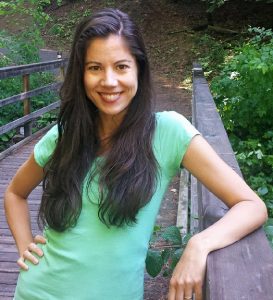
Jessica Ariss
Meet Jessica Ariss, an MRSc student in Rehabilitation Sciences, and learn about her research on therapeutic recreation in a community-based mental health centre.
1. What sparked your interest in pursuing the online Masters of Rehabilitation Science?
I’ve always been interested in education as an avenue for improving my critical thinking and professional practice skills. There are limited educational opportunities near my small town, so online education was particularly appealing. I was looking for an educational program that would prepare and support me to conduct research about mental health recovery and I was impressed with UBC’s positive reputation.
2. Tell me about your research.
My research will explore how therapeutic recreation in a community-based mental health centre can support the recovery of individuals diagnosed with mental illness. Mental health recovery is a unique and individualized process focused on creating a hopeful and fulfilling life, regardless of challenges or symptoms. This consumer-defined concept of recovery has been emphasized in various mental health promotion strategies and recreation therapists are striving to develop and implement services that are recovery oriented. As a recreation therapist in the mental health field, I am interested in contributing to evidence that supports best practice.
3. What’s involved with the research?
Drawing on the principles of participatory action research methodology and photovoice, the research participants will generate and analyze arts-based media and narrative data about therapeutic recreation and mental health recovery. They will be involved in each stage of the research process from the development of the research methods to the data analysis and dissemination of the findings.
4. Why is this research important?
When I decided to study mental health recovery, I could not imagine a research design that didn’t engage mental health service users throughout the research process. The knowledge generated by this exploratory study will start to address a current gap in the literature on recovery-oriented therapeutic recreation services from the perspectives of individuals with lived experience of mental illness.
5. What keeps you motivated?
I’ve always been motivated by the belief that I can make a difference. I strive to have a positive impact on the lives of the individuals I work with and the field of therapeutic recreation. When I see someone develop a positive identity or even just a positive mood by participating in personally meaningful recreational activities, I feel motivated to help others experience the same success.
6. What are your plans for the future?
I intend to continue my work in the mental health field, and to support evidence-based practice in the field of therapeutic recreation by examining the effectiveness of specific therapeutic recreation interventions such as dance-based modalities and recovery-oriented leisure education.
To learn about Graduate Programs in Rehabilitation Sciences, visit http://rehab.med.ubc.ca/.